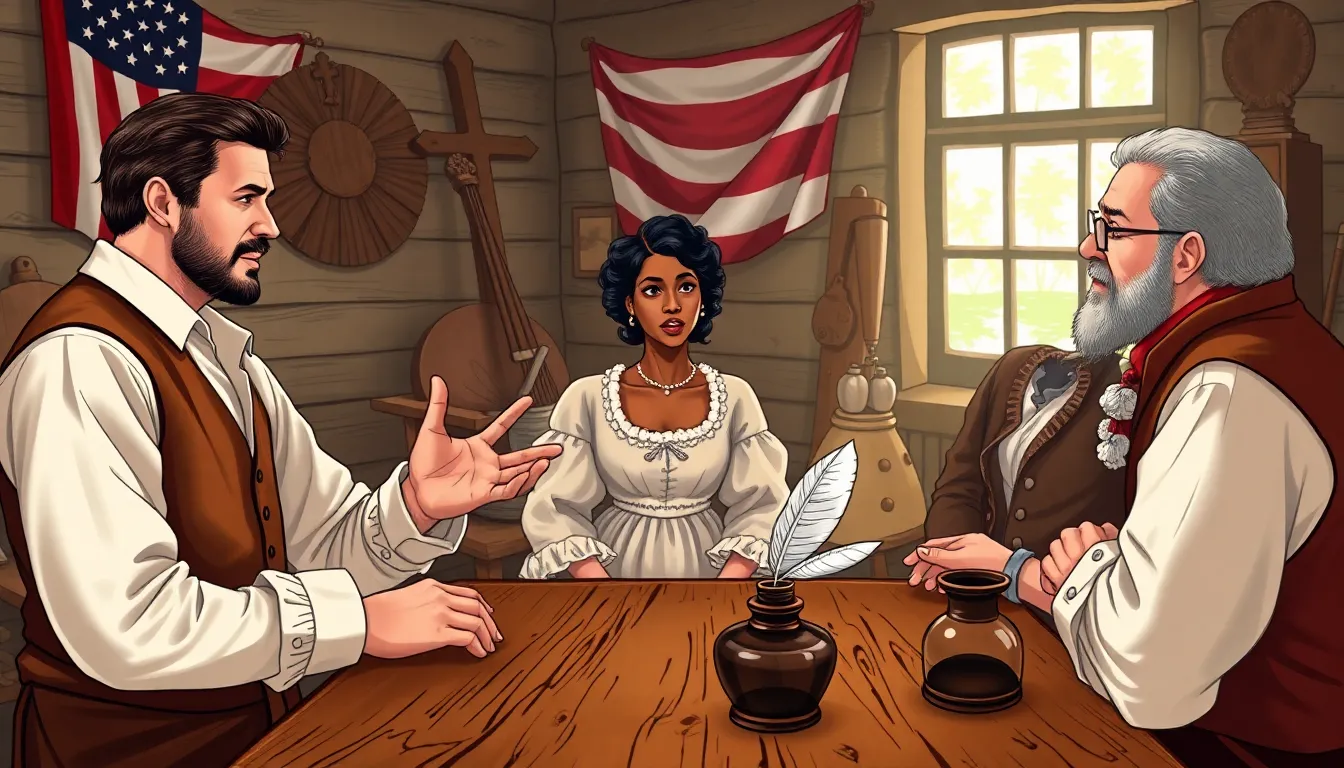Phone:
(701)814-6992
Physical address:
6296 Donnelly Plaza
Ratkeville, Bahamas.

The Declaration of Independence isn’t just a fancy piece of parchment; it’s the original blueprint for a nation’s soul. Picture this: a group of rebels in powdered wigs deciding they’re fed up with tea taxes and royal orders. They didn’t just want to break free; they wanted to lay down some serious political philosophy. It’s like they were saying, “Hey, we’re not just throwing a tantrum. We have some pretty solid ideas about freedom and governance.”
This document boldly declares that all men are created equal and have unalienable rights. It’s a revolutionary manifesto that’s shaped democracies around the globe. So why does it matter? Because it’s not just about independence; it’s about the principles that guide a society. Buckle up as we dive into the philosophical gems hidden in this historic text that still resonate today.
The Declaration of Independence emerged during a transformative period in American history. Events leading up to 1776 shaped the political landscape and stimulated revolutionary thoughts.
Enlightenment thinkers significantly impacted the Declaration’s ideals. Philosophers like John Locke promoted concepts such as natural rights and social contracts. He asserted that individuals possess rights to life, liberty, and property. These ideas heavily influenced Thomas Jefferson’s writing, emphasizing the notion that governments derive power from the consent of the governed. Additionally, Montesquieu’s ideas on separation of powers inspired the structure of future American governance. These Enlightenment principles provided a framework for the Declaration’s political philosophy.
Key figures in the movement toward independence contributed crucial ideas. Thomas Jefferson drafted the document, drawing inspiration from Enlightenment philosophies. Benjamin Franklin played a vital role in advocating for unity among the colonies. John Adams, a fervent supporter of independence, argued for liberty and representation. Each figure brought unique perspectives that shaped the Declaration’s message. Their collective commitment to envisioning a government based on equality and rights laid the groundwork for a new nation.

The Declaration of Independence contains essential themes that outline a profound political philosophy rooted in Enlightenment ideals. These themes illustrate the foundational beliefs upon which the new nation was built.
Natural rights serve as a cornerstone of the Declaration. These rights include life, liberty, and the pursuit of happiness, providing the framework for individual freedom. Thomas Jefferson emphasized that these rights are inherent and cannot be surrendered or transferred. People possess these rights by virtue of their humanity, positioning them above government authority. The recognition of these rights significantly influenced democratic movements worldwide, encouraging societies to embrace the value of individual autonomy.
The Declaration underscores the government’s responsibility to serve the people. Governments derive their just powers from the consent of the governed, reflecting the belief in popular sovereignty. When a government fails to protect the rights of its citizens, it loses legitimacy. This idea encourages the notion of accountability, allowing citizens to alter or abolish oppressive governments. By proclaiming this principle, the Declaration fosters a culture where authority is contingent upon the will of the people, shaping the evolution of governance in democratic societies.
The Declaration of Independence serves as a profound statement of political philosophy. Concepts within it inform governance, individual rights, and societal expectations.
Social contract theory appears prominently in the Declaration. It presents the idea that governments exist based on agreements between rulers and the governed. This agreement signifies mutual obligations; citizens consent to governance in exchange for protection of their rights. In such a contract, the legitimacy of authority comes from the people’s approval. When governments fail in their duties, the theory empowers citizens to alter or abolish them. This dynamic reshapes relationships between authority and residents, establishing a framework for democratic ideology and governance.
Individual liberty emerges as a core theme within the Declaration. Rights like life, liberty, and the pursuit of happiness possess inherent qualities, recognized as universal. By prioritizing these rights, the Declaration advocates for personal freedoms unmatched by government interests. Justice complements this notion, demanding equality and fair treatment under the law. Responsibility to ensure justice lies with the government, reinforcing accountability to citizens. Through these principles, the Declaration emphasizes the importance of prioritizing individual rights, shaping governance structures, and advocating for a just society.
The Declaration of Independence profoundly influences modern political thought across the globe. Its foundational principles continue to resonate within political discourse today.
The Declaration’s legacy manifests in democratic movements worldwide. Leaders draw inspiration from its themes of equality and rights. Countries seeking independence often reference the Declaration as a model. These enduring ideas challenge oppressive regimes and promote self-determination. The document’s assertion that governments derive power from the consent of the governed remains a cornerstone of democratic governance. It empowers citizens to demand accountability, shaping political systems and advocating for human rights everywhere.
Contemporary political debates frequently center on ideas rooted in the Declaration. Politicians and activists invoke its principles when confronting issues such as social justice, civil rights, and government accountability. Movements advocating for equality often cite the Declaration’s promotion of unalienable rights. Legal frameworks in many nations reflect its influence, with constitutions emphasizing individual freedoms. The ongoing discourse surrounding the government’s role in protecting rights showcases the Declaration’s relevance. By challenging inequalities, modern movements echo the Declaration’s sentiments, highlighting its enduring impact on political philosophy.
The Declaration of Independence stands as a testament to the enduring power of political philosophy. Its articulation of unalienable rights and the social contract continues to inspire movements for justice and equality worldwide. By establishing a framework where government derives its legitimacy from the consent of the governed, it empowers citizens to advocate for their rights.
This document not only shaped the course of American history but also laid the groundwork for democratic ideals that resonate today. The principles embedded within the Declaration serve as a reminder of the ongoing struggle for individual liberties and government accountability, reinforcing its relevance in contemporary political discourse.